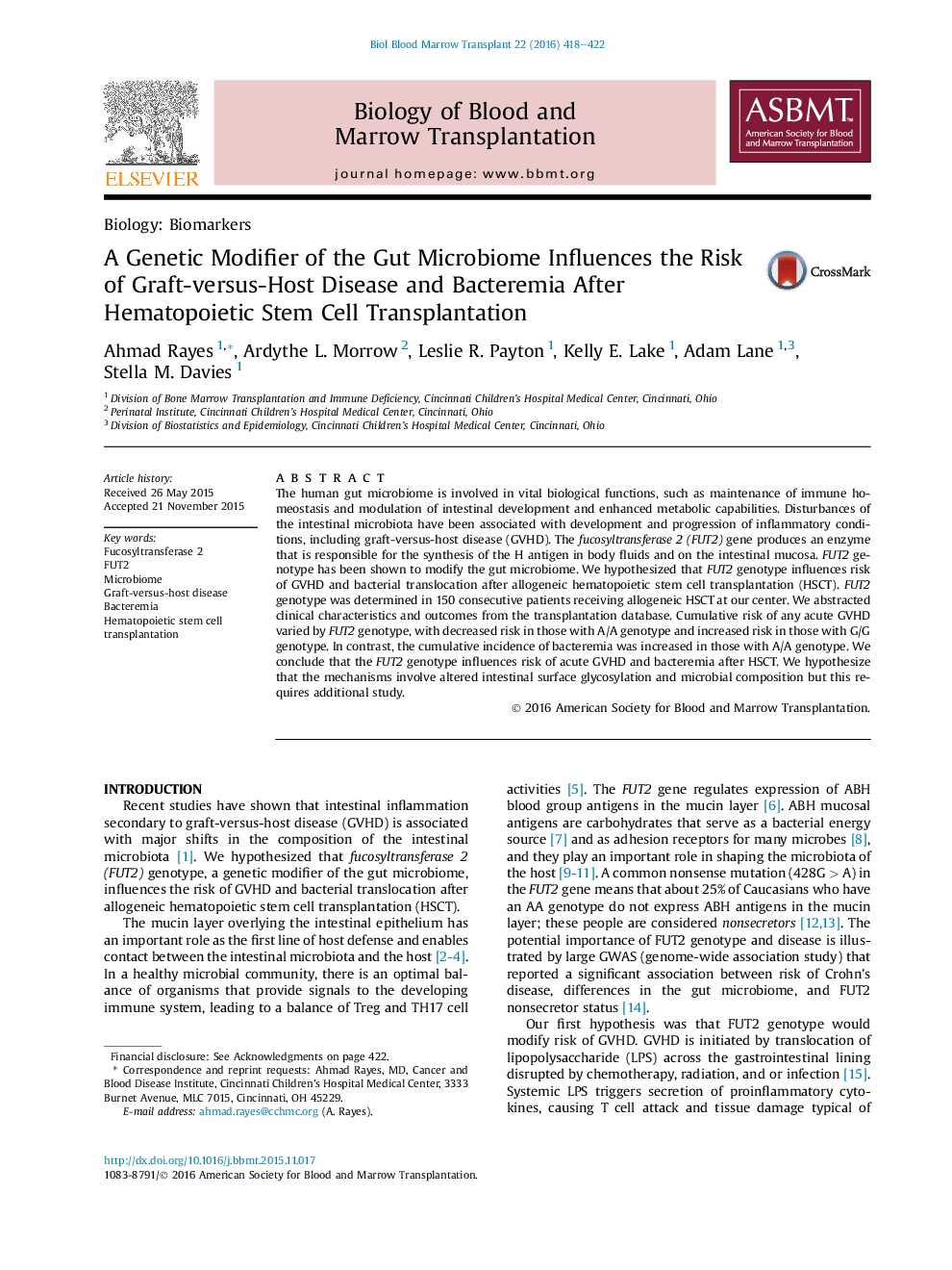| کد مقاله | کد نشریه | سال انتشار | مقاله انگلیسی | نسخه تمام متن |
|---|---|---|---|---|
| 2101791 | 1546256 | 2016 | 5 صفحه PDF | دانلود رایگان |
• Disturbances of the human gut microbiome have been shown to lead to development of inflammatory conditions
• Fucosyltransferase 2, a genetic modifier of the human gut microbiome, influences the risk of graft-versus-host disease after hematopoietic stem cell transplantation
• Fucosyltransferase 2, a genetic modifier of the human gut microbiome, influences the risk of bacteremia after hematopoietic stem cell transplantation
The human gut microbiome is involved in vital biological functions, such as maintenance of immune homeostasis and modulation of intestinal development and enhanced metabolic capabilities. Disturbances of the intestinal microbiota have been associated with development and progression of inflammatory conditions, including graft-versus-host disease (GVHD). The fucosyltransferase 2 (FUT2) gene produces an enzyme that is responsible for the synthesis of the H antigen in body fluids and on the intestinal mucosa. FUT2 genotype has been shown to modify the gut microbiome. We hypothesized that FUT2 genotype influences risk of GVHD and bacterial translocation after allogeneic hematopoietic stem cell transplantation (HSCT). FUT2 genotype was determined in 150 consecutive patients receiving allogeneic HSCT at our center. We abstracted clinical characteristics and outcomes from the transplantation database. Cumulative risk of any acute GVHD varied by FUT2 genotype, with decreased risk in those with A/A genotype and increased risk in those with G/G genotype. In contrast, the cumulative incidence of bacteremia was increased in those with A/A genotype. We conclude that the FUT2 genotype influences risk of acute GVHD and bacteremia after HSCT. We hypothesize that the mechanisms involve altered intestinal surface glycosylation and microbial composition but this requires additional study.
Journal: - Volume 22, Issue 3, March 2016, Pages 418–422
